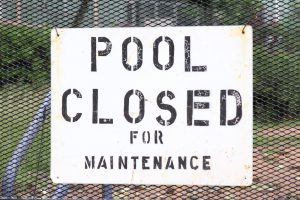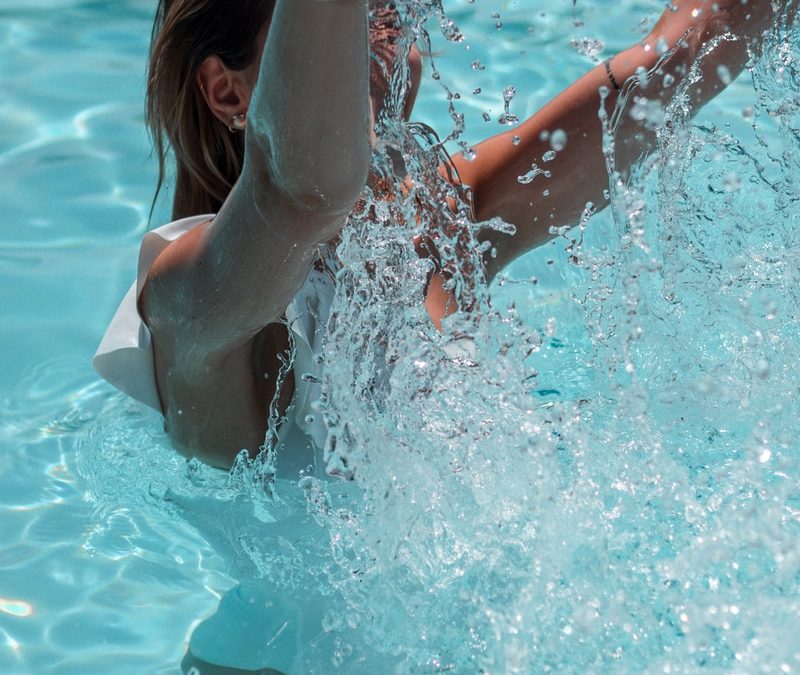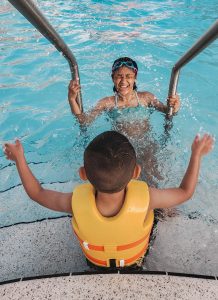A swimming pool is more than just a fun place to cool off on a hot day and have some exercise. It’s one of the best investments you’ll ever make, and there are many benefits to having your own. Some of them are physical, such as being able to reduce stress with an escape from the everyday for some relaxation time in the water. Others are higher-level, like having access to clean, fresh water for drinking or food preparation every day. There are even emotional benefits, such as feeling more secure in your own home.
When you purchase a pool, the most important thing to keep in mind is your future self. If you’re financially stable enough to afford a pool and keep it maintained for years after that, take advantage of it! It’ll give you a sense of happiness to see how many years and summers you will spend at the pool – instead of worrying about leaks, having to pay extra for water after hours or having to haul someone out of the water if they fall in.
Once you have your own pool, don’t neglect it. Take care of it regularly, and stay on top of maintenance problems. If you’re worried about your budget, don’t think twice about hiring a pro. Having a pool is not just a luxury – it’s also worth investing in an expert to look after things for you.
If you take the time to learn about pool maintenance as it applies to your property, you’ll be able to do it yourself with minimal help and, probably, at a significant savings.
Most of us would agree that owning the things in life we truly need makes sense. Home ownership is a huge part of this philosophy, and swimming pools are among the things we own and use on a regular basis. A well-maintained pool can last a lifetime and provide the security and safety that comes only with ownership. They’re also easy to operate and maintain on your own.
There are a lot of reasons home owners love pools, but some of the most important ones are:
- They provide security to our families, children, pets and homes from all types of disasters.
- With proper maintenance, a pool is an excellent investment – plus maintenance will keep your family safe at home and in the yard.
- A well-maintained pool provides recreational activities throughout the warmer months that we wouldn’t think about otherwise.
A well-maintained swimming pool is easy to maintain, which saves energy for heating and cooling, as well as money. It means more free time for you to enjoy your hobbies and relax or do other things around the house. You’ll be glad to have a dependable pool when it comes to protecting your family and property.
If you’re considering getting a pool or are already an owner, it’s important that you are prepared for all the costs that come with owning your own swimming pool – from maintenance, repairs and chemicals to decorative touches like fencing or patio furniture. You’ll need to make sure you’re set up for the long haul.
This article will discuss some of the basic benefits of owning and maintaining a pool and will offer tips and advice on how to keep your pool in great shape all year round.
One of the first things you’ll want to consider when choosing a swimming pool is how much maintenance it will require. Many people underestimate how much it costs to maintain a swimming pool, however, every year you should be prepared for regular repair, cleaning or replacement. A typical swimming pool set up can cost approximately $1 per square foot each year for a commercial facility or about $0.11 per square foot at home (source: Wikipedia). The costs increase for natural rock/pebble and concrete pool flooring.
Another important factor to consider is the maintenance that a pool requires.

Here are a few tips to help you maintain your swimming pool:
- Check the filtration system and filter often, preferably every week or two. If you have a sand filter, this will be easy to do. If you have a cartridge filter, it will require removal and careful inspection of each individual cartridge; after which they must be carefully rinsed. Some systems need other components such as an air pump checked out as well
- Make sure the water level is right before swimming or taking a bath. If your pool has a recirculation system, it will continuously pump out the water and replace it. Make sure there are no leaks before using the pool
- Be sure to keep an eye on your water chemistry. Add chemicals like a copper-out or chlorine-out to reduce algae, or muriatic acid when needed. These can be purchased at any pool store
- If you have an in-ground pool, check for cracks in the cement. It’s important to seal these cracks to prevent damage from insects
Another important factor you’ll want to consider is how much water your swimming pool holds and how often you’ll need to clean it. The more water a pool holds, the longer it will take to clean and refill. A typical in-ground pool holds 25,000 gallons of water. An average above-ground pool holds approximately 5,000 gallons of water.
Some pools are easy to maintain with a basic cleaning, others require specialized care to maintain their attractive appearance and cleanliness. If you have an above ground pool, you might have to clean it each week; therefore it’s important that the water is replaced at least every two weeks. If you have an in-ground swimming pool, then you’ll want to check for leaks each week and your water level will need to be refilled after use a few times a week.
How to Get the Most Out of Your Swimming Pool.
Here are a few tips for making your time at the pool even better:
- Time it right! Depending on the season, you can expect the heat in your pool to peak around mid-day, so take advantage of that. The sun is out and it’s warm outside, so take advantage of it as often as you can. If possible, have some entertainment planned when you go down to the pool – watch a movie, play board games or do some other activity that’ll take advantage of this time. These types of activities are perfect if your kids end up getting bored with swimming lessons or just want an excuse to leave the house for a while.
- Get a cover! Even if your pool is located in somewhere with a sunny climate, you’ll want to protect it from the elements. A cover will keep the water cool and will prevent algae buildup, keeping the environment around your pool clean.
- Invest in a good alarm system. If you’re concerned about someone going missing while they’re swimming – which happens more often than you might think – get an alarm system installed at your pool. This will provide surveillance should someone need help, and could even be used to deliver important messages to friends or family members when they accidentally go missing at your pool (think: “I’m drowning!”).
- Pack your lunch. One way to spend your time at the pool is to pack a lunch and enjoy it while you sit on the pool steps. Not only does this save you money, but it gives you an opportunity to socialize with other members of the household or other people that are at the pool.
- Take lessons! It’s never too late to learn a new skill, whether it’s diving or something more specialized, like water aerobics or swim lessons for kids.
- Keep safety in mind! Drink plenty of water before and after swimming – especially if you’ve been sitting in the hot sun for too long – and make sure to apply sunscreen in large amounts when you’re outside for more than a few hours.
- Give your eyes a break! It might seem like a good idea to swim in your pool at night, but you’ll want to make sure that you’re using the appropriate lighting for visibility. If you notice any problems with your eyesight after swimming at night, don’t hesitate to check in with your eye doctor.
- Don’t forget about the fun stuff! Make sure you have plenty of toys and accessories to keep everyone entertained while they’re at the pool. Remember: it’s not just about swimming! Having something more entertaining to do will keep people interested in staying by the pool long enough for them to cool off or get some exercise in, despite how bad they might be at swimming already.
- Go easy on yourself! If you’re nervous about diving into the water after you’ve never swum before, don’t be afraid to take it easy on yourself. You can always start out by walking in the shallow end of the pool, slowly getting used to being in the water. Then you can work your way up to practicing more advanced swimming skills if you feel comfortable enough with them.
- Don’t forget your sun hat! Sun hats will keep your face and eyes from getting burnt while you’re around the pool. This is especially important if you have a lot of fair-skinned friends – an uncomfortable sunburn will spoil their fun too!
- Keep the chemicals balanced. The chlorine in your pool will help keep the water clean and safe for swimming, but if you add too much of it, you risk drying out your skin or eyes and generally making life more uncomfortable for yourself. Make sure you talk to a pool professional before deciding on the right amount of chemicals for your pool.
- Keep an eye on urine and vomit! The chlorine in your water will help with this problem, but if someone vomits or pees in the water, it’s important to get them out as soon as possible – preferably without getting them wet! Chlorine is great at destroying bacteria and viruses that can make swimmers sick.
- Understand the risks! While chlorine is a great tool for improving swimming pool hygiene, it’s important to be aware of the things that can go wrong when you’re around a pool during swimmable times. The same precautions you’d take for playing outside in the sun should also be taken with respect to swimming pools.
- Stay safe! You might be able to swim at your house (which is something we all take for granted), but there’s always the risk that someone could drown at your pool, whether it’s accidentally falling in or getting swept away by a strong current. If you have rough water around your pool, always be on the lookout for dangerous currents or people and pets being swept away.
- Make sure you understand the risks! Even if you’re careful to follow all of our tips for keeping your pool safe, there’s always the chance that someone could still get injured. Make sure to understand all of your rights if this should happen so you can determine who is responsible and whether or not they will be liable for damages.
- Don’t swim alone! It’s always a good idea to have someone watching you in case something happens. You never want to go swimming by yourself – especially at night – because there’s no one there to help if something bad were to happen.
- Use a personal flotation device (PFD)! If you want to have fun with your friends, renting a PFDs is a great way to make sure everyone stays safe in case of an accident. A PFD is a device that will help keep your head above water and can pull you to the surface if you’re ever in trouble. It’s worthwhile investment that could save your life!
- Lifejackets are your best option. While there are many different types of PFDs on the market, you might want to invest in a life jacket instead – particularly if you or someone else has special needs that require extra support while swimming or snorkeling.
- Only swim at the pool during daylight. If you can, try to avoid going to the pool after dark – especially if it’s well-lit with outside lights. Being in the dark can make it difficult to see the surface and can make you more prone to injury.
- Staying in shape is always a good idea! Swimming can be physically demanding, and if you are out of shape or have any underlying health conditions, you could be putting yourself at risk if you weren’t careful enough with your swimming habits.
- Always keep your eyes on your kids while they’re swimming. Keep a close eye on children while they’re in the pool – even if you’re confident that your kids can swim and are okay without adult supervision, it’s always a good idea to make sure that anyone in the pool is safe at all times.
- Don’t jump into the pool from higher than waist-height. The shock of jumping into a body of water can be jarring, and even dangerous . You might want to try lowering yourself into the water instead or test out jumping from lower heights first.
- No lifeguards? Swim at an indoor pool with at least one other person.
If you have any other tips or suggestions for considering purchasing a pool, please comment on this article and be sure to share and contact us at 1-778-899-9175 for an appointment .



